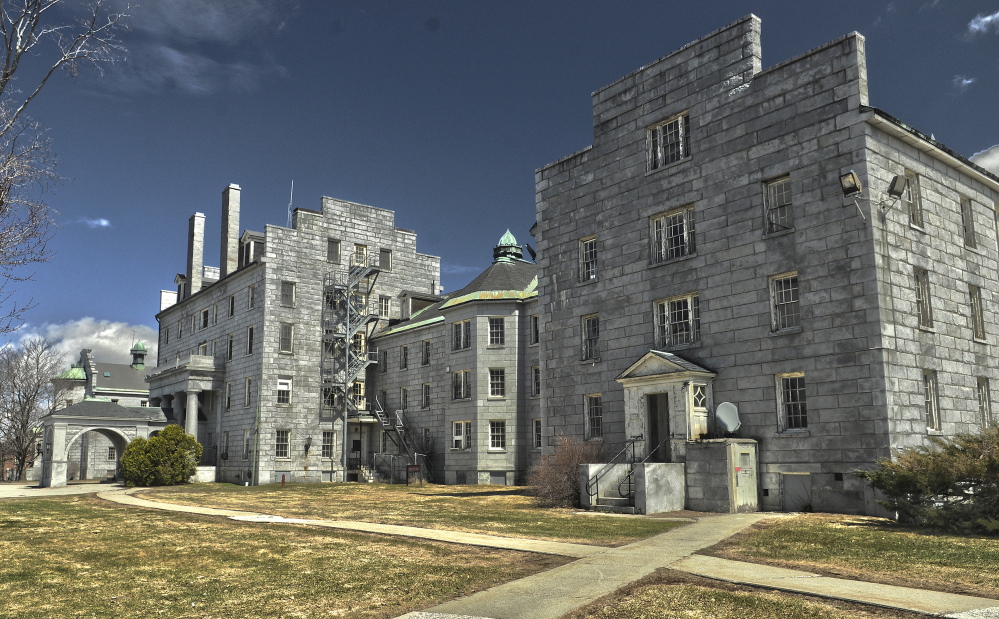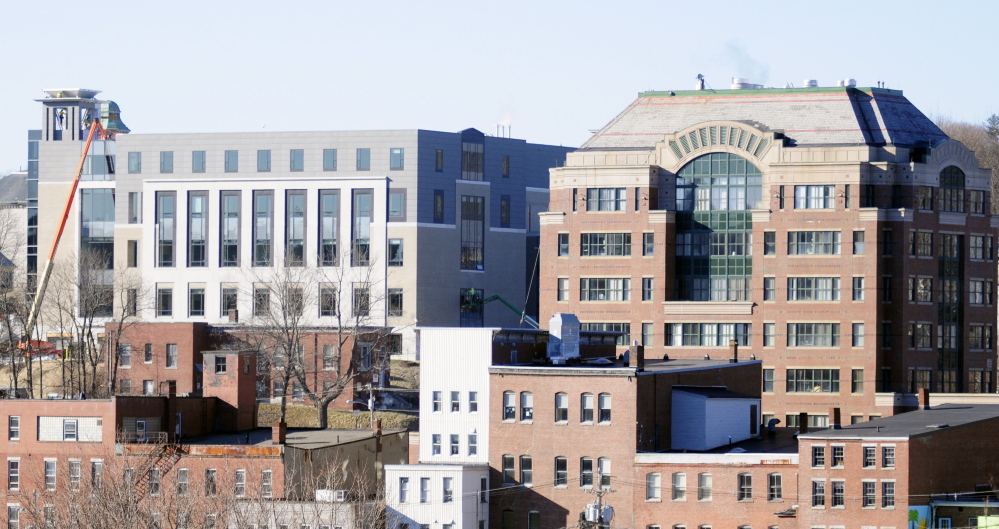AUGUSTA — Some of the city’s largest and most prominent buildings would be left nearly vacant under a state proposal to borrow $112 million to move state workers from leased space to renovated or yet-to-be-built state-owned property.
City officials and the owners of more than 200,000 square feet of private office space leased to the state say the proposal, deep in Gov. Paul LePage’s proposed state budget, would be devastating to the capital city.
They also say it could cost money in the long run.
State officials, meanwhile, say the proposal to borrow money to create more state-owned office space and move workers into it as leases expire could save $46.4 million over 35 years, according to an initial state analysis.
A one-paragraph proposal tucked deep into LePage’s budget would authorize the Maine Governmental Facilities Authority to issue $112 million in bonds for capital repairs and improvements to state property.
That benign-seeming language in the 121-page budget, said city officials and state Sen. Roger Katz, R-Augusta, is part of a larger proposal to move state offices and storage space now leased in some of the largest income-producing commercial buildings in Augusta into state-owned office space.
On the list are 317,000-square-foot Central Maine Commerce Center in north Augusta, 76,510-square-foot Key Plaza building in downtown Augusta, and 2, 35 and 41 Anthony Avenue in the Augusta Business Park in north Augusta.
City Manager William Bridgeo said state-leased space in all of the properties listed totals 362,204 square feet and brings in, or from the state’s perspective costs, $4.4 million a year in lease fees. He said the property value amounts to about 5 percent of Augusta’s total property value.
The analysis that goes with the state’s proposal appears to have been based on the lease cost for 271,000 square feet versus the cost of owning and maintaining 170,000 square feet of space.
Some of the new state space would be built, and other space would be renovated, Katz said.
He said the buildings to be renovated would likely be on the old Augusta Mental Health Institute campus on Augusta’s east side.
The Department of Health and Human Services occupies the three Anthony Avenue sites, and he said that move would be part of a plan to consolidate the department into one new building, presumably to be built in Augusta.
The proposal could leave roughly 70 percent of the Central Maine Commerce Center and all but the bottom floor of the downtown Key Plaza building vacant, according to preliminary information provided to Katz by the state Department of Administrative and Financial Services.
Bridgeo said the proposal could cost the city “well in excess of $1 million a year,” in reduced property taxes from the commercial buildings now leased out to the state by building owners. Bridgeo said much of the taxable value of commercial buildings is based upon how much income they produce. So if the building owners get less lease income, the city would get less property tax income.
“This is a significant issue for the city of Augusta and something we have to get on,” Bridgeo said. “We’re going to pursue it, vigorously.”
Kevin Mattson, a partner in the Central Maine Commerce Center, said about 70 percent of the sprawling former computer plant in north Augusta converted years ago to mostly office space is occupied by state offices, including 43,100 square feet of space used by the Department of Public Safety on an annual lease of $520,000, which expires in 2019.
While it isn’t as though all the state workers there would move out under the proposal, he said the overall impact of state workers moving from leased property-tax paying property to state-owned, non-property tax paying property would be devastating to the city and leave building owners like him with a bunch of vacant space all at once.
The state’s Key Bank building lease is up in 2018, 25 Anthony Ave. is up in 2016, and 2 and 41 Anthony Avenue are up in 2023.
Mattson and city officials said it’s not the financial woes the proposal would bring to commercial building owners, or even the substantial lost revenue it would cost the city that will form the basis of their fight against it.
Instead, they plan to make their case the proposal would be a bad deal for the state, and cost more public money than leasing space.
Katz said he’s “confident once the facts are on the table, we can show leasing space from the private sector is a real bargain for state taxpayers, versus the full cost of the state constructing and operating its own buildings in the area.”
Katz said the Appropriations Committee, of which he is a member, will eventually review the proposal as part of their review of the entire, more than $6 billion two year state budget proposal. He said most bond proposals come to the Legislature as standalone bills.
Copy the Story Link
Send questions/comments to the editors.






Success. Please wait for the page to reload. If the page does not reload within 5 seconds, please refresh the page.
Enter your email and password to access comments.
Hi, to comment on stories you must . This profile is in addition to your subscription and website login.
Already have a commenting profile? .
Invalid username/password.
Please check your email to confirm and complete your registration.
Only subscribers are eligible to post comments. Please subscribe or login first for digital access. Here’s why.
Use the form below to reset your password. When you've submitted your account email, we will send an email with a reset code.